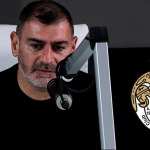Scientists announced that a German man might have been cured of HIV after a pioneering stem cell transplant. This announcement comes ahead of the International AIDS Conference in Munich, Germany.
Key Points:
- Significance: The 60-year-old is the seventh person ever considered cured of HIV, a virus that affects 39 million people globally, including 1.2 million in the U.S.
- Unexpected Outcome: The man’s cure is notable because the stem cell donor was not immune to HIV, a surprising find, said HIV expert Christian Gaebler from Charité-Universitätsmedizin Berlin.
- Background: Diagnosed with HIV in 2009 and acute myeloid leukemia (AML) in 2015, the patient received a stem cell transplant in 2015. He stopped antiviral therapy in 2018, and no cancer cells have been detected since.
- Current Status: Professor Olaf Penack confirmed that the patient has been virus-free for over five years, indicating a complete removal of HIV from his body.
- Procedure Risks: Gaebler cautioned that stem cell transplants carry significant risks, making them unsuitable for all HIV cases.
- Unique Case: This is the first remission case where the stem cell donor had a single CCR5-delta32 mutation, unlike previous cases where donors had two copies of the mutation.
- Broader Implications: Sharon Lewin of the International AIDS Society highlighted that this research could expand the donor pool for similar treatments and shows that complete removal of CCR5 is unnecessary for gene therapy.
- Scientific Mystery: Researchers are still unsure why this transplant led to a cure, unlike other cases. Factors like the rapid replacement of the immune system or unique properties of the donor’s immune system might play a role.
- Future Goals: Gaebler emphasized the importance of understanding these factors to develop new treatment methods, aiming for a universal cure for HIV.
Scientists continue to strive for a comprehensive cure for HIV, moving beyond individual cases to widespread treatment strategies.
















